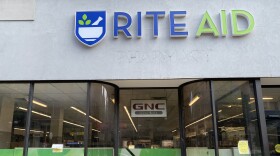Ed Mahon of Spotlight PA
-
The move represents a victory for a range of groups, including advocates who argue public defenders play a vital role in helping people dealing with addiction.
-
Counties battle uncertainty over funding rules while advocates and families push for an increased say in opioid settlement spending decisions.
-
Lawmakers want to ensure the Shapiro admin is holding corporate middlemen, known as pharmacy benefit managers, accountable.
-
Pennsylvania pharmacies can offer COVID-19 vaccines, but they and their patients are navigating competing guidelines for who should receive them.
-
Secretive board overseeing Pa.’s billion-dollar opioid response invites public to speak for 1st timeFollowing pressure, the powerful board overseeing Pennsylvania opioid settlement money allows public comment but faces continued criticism over transparency and representation.
-
Hundreds of pharmacy closures since 2020 have left patients with fewer options across Pennsylvania.
-
Pharmacists say insurance reimbursements fail to cover their costs. They say a new law isn't enough to reverse the trend.
-
A board managing drug company payouts faces scrutiny over transparency as families and counties push back against secret meetings and limited public oversight.
-
With an estimated $2 billion at stake, Spotlight PA used community conversations, a survey, and data tools to elevate public voices in the opioid settlement rollout.
-
Spotlight PA answers your questions about Pennsylvania’s opioid crisis — who’s affected, what’s being done, and how you can get involved in the response.











